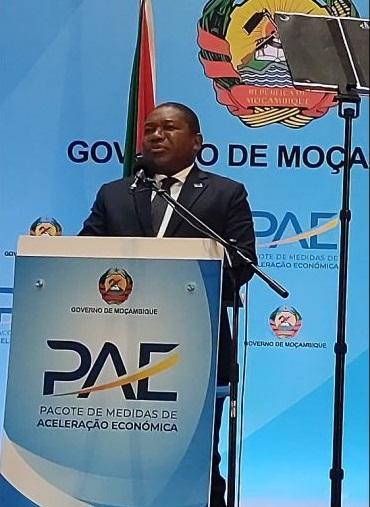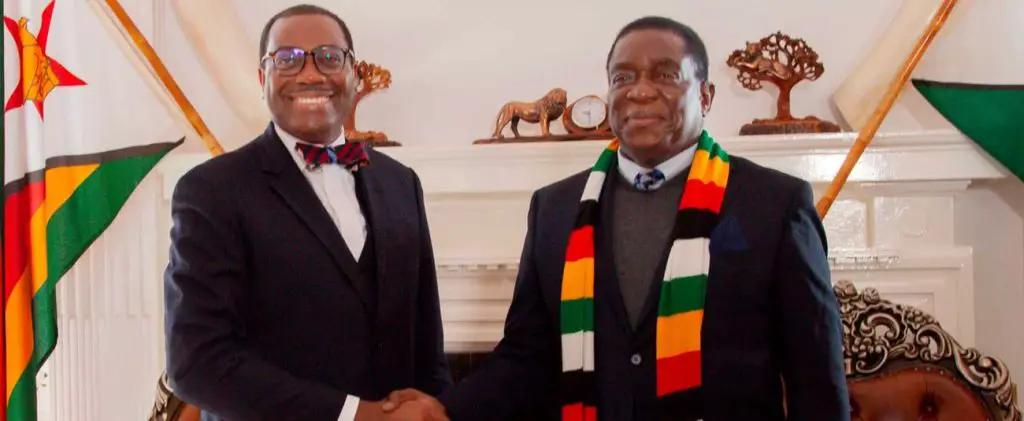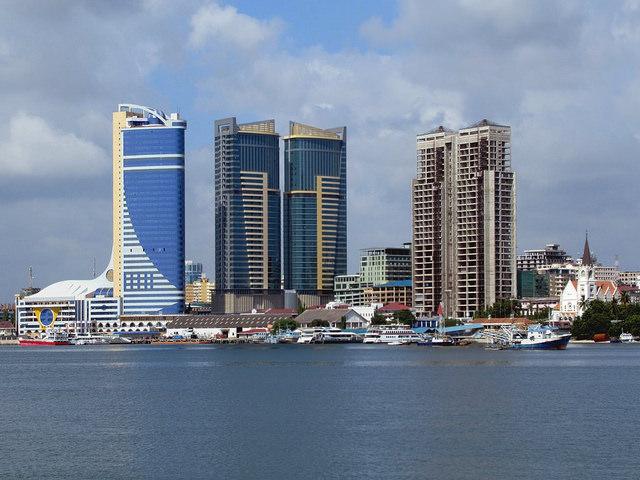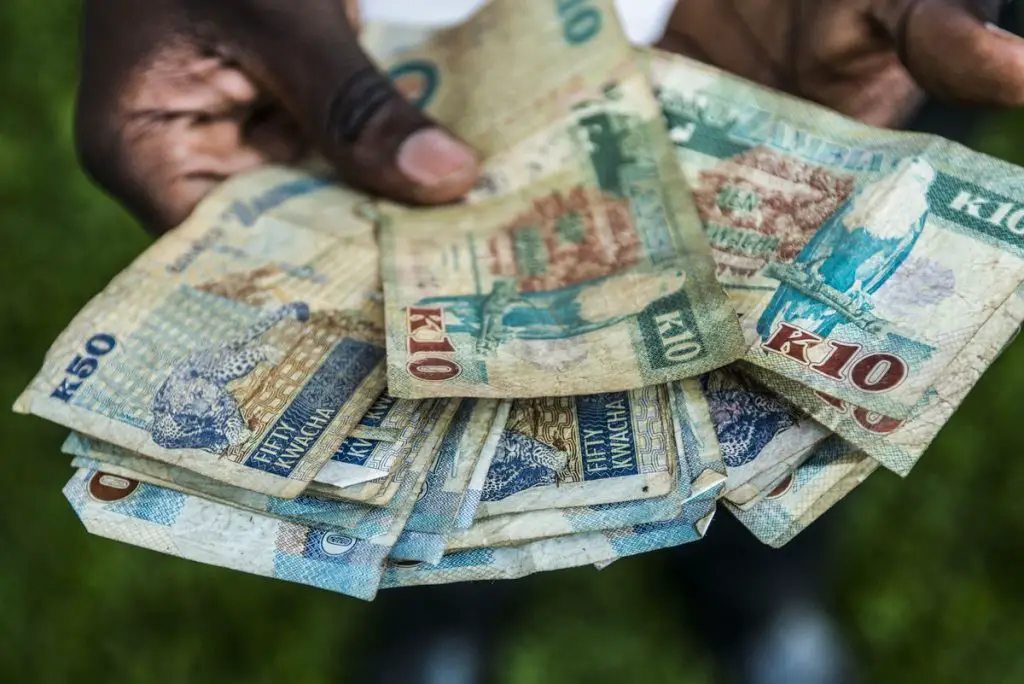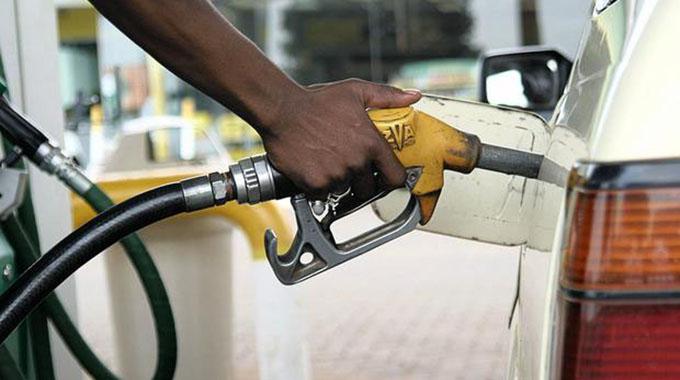- Africa’s Green Economy Summit 2026 readies pipeline of investment-ready green ventures
- East Africa banks on youth-led innovation to transform food systems sector
- The Washington Accords and Rwanda DRC Peace Deal
- Binance Junior, a crypto savings account targeting children and teens debuts in Africa
- African Union Agenda 2063 and the Conflicts Threatening “The Africa We Want”
- New HIV prevention drug is out — can ravaged African nations afford to miss it?
- From banking to supply chains, here’s how blockchain is powering lives across Africa
- Modern railways system sparks fresh drive in Tanzania’s economic ambitions
Browsing: IMF
The PAE – Economic Acceleration Stimulus Package consists of 22 measures divided into two sets of reforms, the first being fiscal and economic stimulus and the second the improvement of its business environment, transparency, governance, and the acceleration of strategic infrastructure.
The fiscal and economic stimulus interventions include the reduction of selected taxes with a direct impact on the main productive sectors.
The measures announced lower the IRPC from 32 per cent to 10 per cent in agriculture, aquaculture, and public transport, and VAT from 17 per cent to 16 per cent and include a VAT exemption on imports for agriculture and electrification to boost renewable energy.
The Mozambican head of state also signalled the introduction of tax incentives for new investments over the next three years but did not mention the rates of these incentives.
In September last year, the government started making quarterly token payments of $100,000 to each of the 16 Paris Club creditors as it sought ways to extinguish the mounting debt.
As of the end of May, Zimbabwe had made $8 million in token payments to multilateral banks and $4.8 million to the Paris Club creditors.
The article added that Zimbabwe is already defaulting on active loans from China, which is affecting the disbursement of funds for ongoing projects, the debt management office said in the report.
African countries have started recovering from the effects of the COVID-19 pandemic after most economies shrunk due to the crisis.
The continent is home to over a billion people who live in low, lower-middle, upper-middle, and high-income countries.
The economy in the Sub-Saharan Africa (SSA) region is projected to expand by 3.6 per cent in 2022, down from 4 per cent in 2021, according to World Bank.
The most significant concern is Africa’s susceptibility to growing inflation in developed and developing economies, given the continent’s reliance on imports.
Further, the IMF argued that the ECF arrangement for Tanzania supports government priorities, strengthening fiscal space for much-needed social spending and high-yield public investment, resuming and advancing the authorities’ structural reform agenda and strengthening financial deepening and stability.
Moreover, the IMF statement noted that “the ECF arrangement is centred on supporting the economic recovery from the scarring effects of Covid-19 and coping with spillovers from the war in Ukraine; preserving macroeconomic stability, and advancing the structural reform agenda toward sustainable and inclusive growth.”
On a broader scale, the IMF’s financial support goes after levitating Tanzania’s essential priorities.
Zambia is Africa’s largest copper producer, which is one of the reasons it has one of the strongest currencies on the continent. The country possesses abundant natural resources, and because copper is the most prevalent metal, copper mining is carried out on a massive scale. This provides Zambia with a significant rise in foreign currency earnings from the sale of metals to other countries.
Bscholarly notes that the value of a currency is significant because it determines the economic performance of a country. This has a direct impact on a currency’s demand on the global market. Exchange rates compare one currency to another and provide an overview of a currency’s strength in the global marketplace. According to financial analysts, factors like interest rates, economic policies, and stability determine the strength of any currency.
Mining liberalization, a debt restructuring programme following default on debt repayments in 2020, and high commodity prices have also had a positive impact on the performance of the local currency.
According to an article by Newsday dated May 2, 2022, Zimbabwe’s fuel consumption increased to almost 1,2 billion litres during the 11 months to November last year, compared to just over one billion litres in 2020, data from the energy regulator showed.
In its market update, Zera said the country guzzled 1 152 198 301 litres during the period, 10% more than the 1 035 624 744 litres used during the same period in 2020.
Zimbabwe now has the highest fuel prices, not only in the Southern African Development Community (SADC) but also on the African continent according to globalpetrolprices.com.
In the same article, Consumer Council of Zimbabwe (CCZ) spokesperson Chris Kamba expressed concern over the impact of the fuel hike on consumers.
These foreign exchange controls and restrictions will pose challenges for international businesses and foreign investors in Tanzania.
When introducing approvals and making them necessary for just about every kind of transaction, foreign exchange restrictions add a level of complexity to investors’ business model and implementation strategy.
The Tanzania Foreign Exchange Regulations require authorisations and justifications for several areas including exporting, importing or simply where a non-resident is directly investing in Tanzania.
While there could be a problem with income being paid outside of Tanzania for activities that are taking place in Tanzania, putting foreign exchange controls rarely constitutes the answer to encourage investors to keep their funds in the country.
Consequently, China has carefully abandoned its strong preference for bilateral dealing with problem debtors. The Chinese state avoids being a rule-taker compared to the West on debt issues. Still, it increasingly appears to recognize that multilateral approaches – ideally on an ‘a la carte’ basis – can help contain both the pressures on its African partners and its challenges.
China, therefore cautiously supported the DSSI for some African nations when it came to effect in April 2020, and similarly, the Common Framework launched in 2021. However, the slow implementation of the Common Framework brings to light four specific challenges linked to China’s role.
First is China’s discomfort with the independent and central role played by the IMF in controlling how much a country can afford to pay through its debt sustainability analysis (DSA). Second is the alarm of privates, and public sector lenders in the West over a lack of accountability in the total amount of debt China lent to African nations.
The goal here is to have more companies register on the island to increase Zanzibar’s internal revenue through taxes and related fees. The move is also expected to create employment on the island as companies open subsidiaries they will naturally have to hire.
Overall, according to the International Monetary Fund (IMF ), last year’s growth of around 4 per cent is expected to pick up to about 5½ per cent this year and to then maintain a steady growth of the next few years, assuming no other pandemic strikes that are.
Ceterisperibus, should the economic reforms announced by the new administration and the envisaged improvements in the business climate materialize, then medium-term growth could reach 6 per cent, says the IMF.





